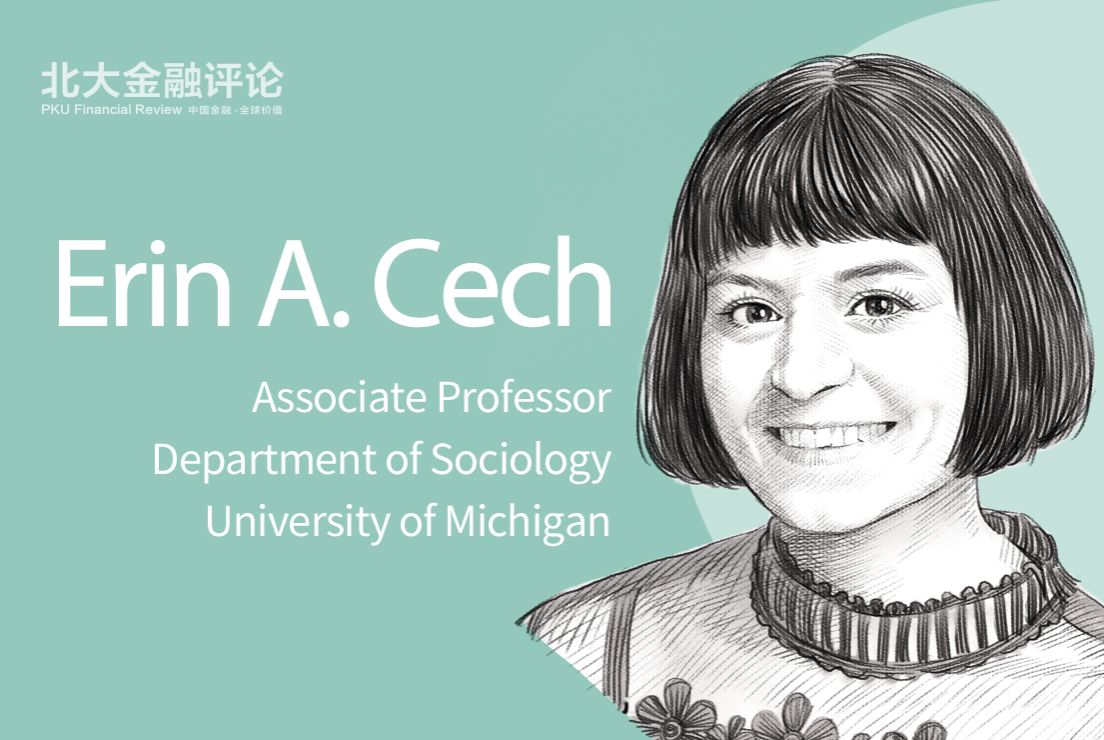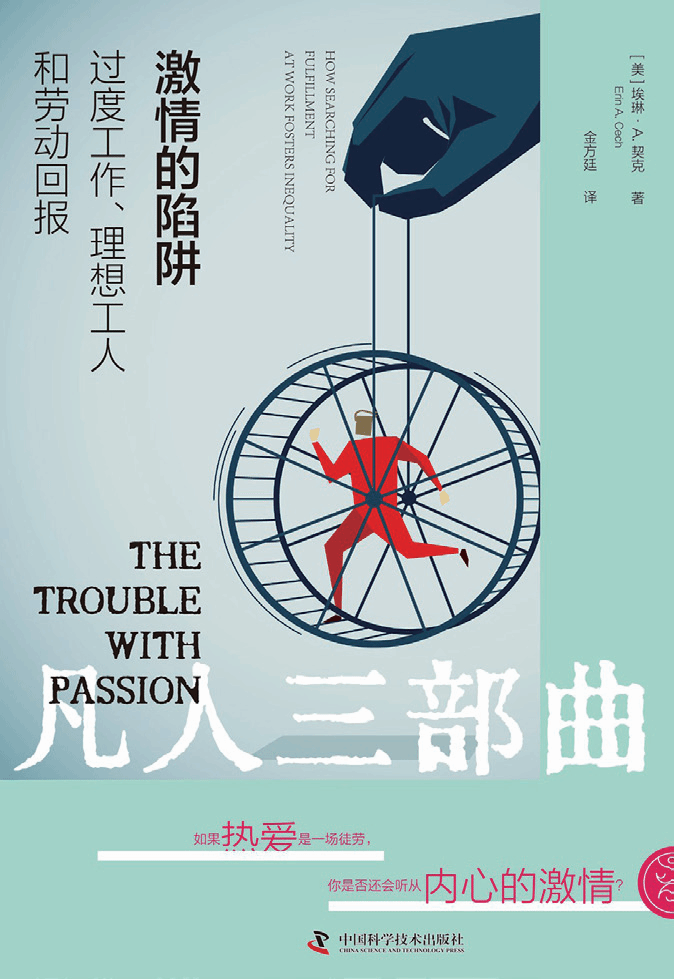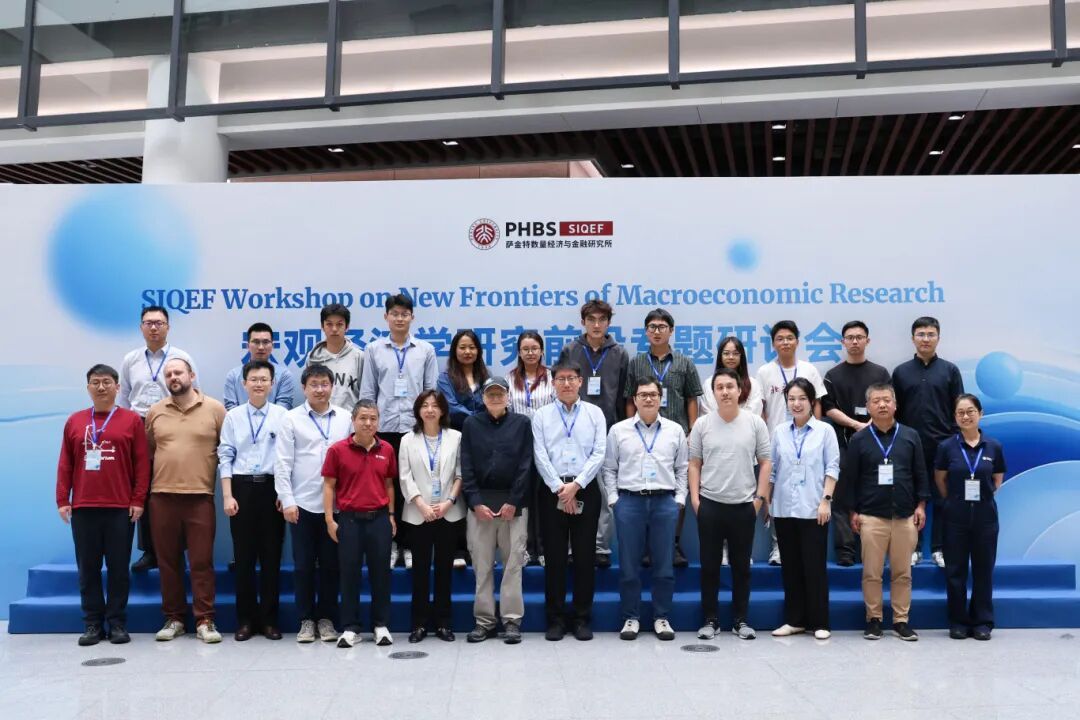PKU Financial Review: In the era of rapid economic growth period, we can see workplace passion is common. But in today's world, with the economic growth rate slowing down and many significant changes are happening globally, more and more people are feeling burned out and opting for a "lying flat" lifestyle. So why does the pursuit of workplace passion still hold significant appeal in contemporary social ideologies? Doesn't this notion seem somewhat not matching with the current situation?
Erin Cech: That's a great question. So I think there's a few things involved that really have to do with the development of relationships to paid employment over the last several decades. Around the sort of 1970s and 1980s, we start to see a growth in precarity of professional employment across all sectors that really wasn't the case in prior decades. And now we have this equality of instability where professional jobs have the same kinds of instability, in some regards, as blue collar and service work. And that's been the case for the last three or four decades.
So we could have seen, career people who are pursuing their careers approach this kind of precarity in a couple of different ways. One is that they could have tried to pursue the most stable, well-paying employment they could find. So taking their certification and saying: "What with this degree can I get that's the most stable and best well-paid?" But that's not what we see typically in the work that I've done. People are asking themselves: "Well, things are unstable anyway. I'm not guaranteed to have longevity in my job. I'm not guaranteed to have stability in any kind of organization that I work in. So I might as well follow work that I find meaningful and valuable to me personally."
So I think in the current space of economic instability and employment instability for a lot of individuals, the idea of pursuing your passion is a kind of salve or an inoculation against what they see as a tremendous amount of overwork--an expectation that they will face burnout to some extent somewhere along the way. And so, for many people that were included in my research, for them, having passion for work was a way to protect themselves against burnout. Of course that that wasn't the case always, but that's the way that they thought about it. That's what they the kind of meaning they made about pursuing their passion.

PKU Financial Review: As you mentioned in the book, a large number of Asian cases often attach more importance to salary and social mobility when job hunting. Job seekers usually have a strong goal-oriented job-hunting mentality, yet their understanding of the ideal career is highly homogeneous. This process often disregards passion and individual subjective hobbies. What's your opinion on this cultural difference in the workplace between the East and West?
Erin Cech: So what I saw is that students who emigrated to the United States, either first generation themselves or second generation students from parents that were from Asia, they tended to feel a lot of pressure from their parents to pursue careers that were stable, and that had the ability for a strong salary growth over time. But in the context of being educated in a western context like the United States, there was tremendous pressure from their peers and often from their teachers and their professors to prioritize passion seeking. And so I heard stories where first generation and second generation Asian students, in particular, were going back to their parents and saying: "No, you want me to be a lawyer or a doctor or an engineer, but I want to do this. I want to follow my passion. My peers are following their passion. My teachers are telling me that's what I should do." And so they were bringing this very western notion of what it meant to center like passion seeking back to their parents as a way of saying: "I want to do something different." And so I think that the contrast in the kind of cultural space is really clear there.
But I think more broadly one of the reasons I argue that the idea of pursuing your passion is so potent in the West is because there's so few other places besides work where people can find a sense of identity and to pursue what Anthony Giddens calls “the reflexive project of the self”. This idea in postmodernity that we're supposed to find ourselves and kind of craft this narrative of who we are over the course of our life course. And in western contexts like the United States, there's fewer and fewer community-based places where people can find their identity. People are going to church less and less. There's less of a kind of connection to community-oriented spaces and in one's locality. And so the workplace, the work people do, is this ready-made way to find a sense of identity and cultivate a sense of identity.
So I think in other cultural spaces where there's more of a communal understanding of the self and more of a connection to a sense of family and local community or local area, that passion doesn't have to play such a strong role.

PKU Financial Review: "The Trouble with Passion" tells us that encountering setbacks in the pursuit of passion in the workplace is not necessarily a reflection of one's own problem; rather, it might be the result of an unfair social structure imposed on the individual. In China, we are very concerned about the issue of inequality. We've always wondered that is lifetime inequality mainly due to differences across people established early in life or to differences in luck experienced over the working lifetime? Should the government build a society with a smaller gap between the rich and poor, or should it increase the retraining and re-education of adults?
Erin Cech: That's such a good question. And I'm not necessarily in a position to articulate governmental policies by any means. But I think what my work really reveals is the power of two different places where inequality is reproduced that often aren't seen as mechanisms of inequality.
So the first is in access to well-paying jobs that is aligned with the kind of career trajectory that people want. So you can get a degree in engineering, for example, and you can have people who come from very different socio-economic backgrounds and get the same degree.
But your ability to launch into a job that's stable, that's well-paid, that's prestigious, often depends a lot on who you know, and on your ability to connect into particular labor markets. And so there's a big difference between getting a certification, whether you were doing it because you're passionate or for other reasons, and the kind of things that you're able to get and the kind of stability and financial status you're able to get with that particular degree. I'm sure the nepotism in employment is an issue in your contacts as well as mine. And so there's a lot of leaning on informal relationships for people to get that kind of access.
And so what I find is that when people are pursuing their passion, it's particularly risky for people who don't have those kinds of connections to be able to launch into jobs that are stable and well-paying. If they don't have those kinds of connections and they followed something that was aligned with their passion and maybe doesn't have the same degree of annual income or something like that. The other component is the differential in what different fields are paid.
So in the gender inequality context, for example, there's often a bifurcation in terms of who is going into primary education teaching versus into science and engineering fields. And that kind of gender imbalance varies across cultural and country context, of course. But we also see is typically those fields that are more dominated by women just tend to be paid less. They tend to be culturally valued less. And so the distribution of people into different fields leads to the perpetuation of these inequities because the pay for those fields on average are different.
And so that can play out in the context of gender. It certainly can play out in the context of economic background and economic status. And so thinking about the ways that different fields are paid and valued is a really important piece of the perpetuation of inequality that I think at a policy level tends to be ignored. But I think in terms of like if we look across the board and where inequities exist, that's a big piece of it that kind of intra-occupational inequality.
PKU Financial Review: The last question. You pointed out, "Passion can also have traps." In this trap, we see overworking, and we see people who try their best to become an "ideal worker", whose efforts are not in line with the rewards. This reminds us of the discovery of the book "The Resilient Society". The author Markus K. Brunnermeier believes that even if people suffer the same negative shock, the impact on them and the resilience they have are different. Under the "passion trap" and "resilience inequality", outstanding performance does not equal to excellence in working evaluation. So in your opinion, how can ordinary people break free from the shackles of "Meritism"?
Erin Cech: I would say there's a few things. One is understanding that the labor market is not meritocratic and pushing back on the very belief that it is, and I think that is one of the most potent ways that people can feel really discouraged in the labor market is believing that the labor market operates fairly. Because if you believe that the labor market operates fairly and you're not succeeding in the way that somebody else is succeeding even though they're putting in the same effort and they have the same certification that feels like your fault. And without an understanding that the labor market is unequal, people tend to blame themselves. And I think this is especially true in the case when people seek to follow their passion or find work that they're really personally invested in. They're more likely to overwork to align with these ideal worker norms that can often lead to burnout down the line.
But if when they experience that burnout, it's experienced as a deeply personal sense of burnout that there’s somehow feeling disconnected from a sense of their own self all of a sudden. And that can be really deeply unsettling for people to say: "I find a lot of fulfillment or I have a lot of identity built around this profession that I'm in. And then all of a sudden being in this profession makes me feel miserable. What does that mean about me?" It can be very existentially unsettling for people in that context.
And so then how do we deal with this? I think one of the most important things is to recognize that the labor market is not meritocratic. And the second one is as I talk about in the book: diversify your meaning-making portfolio. And by that I mean finding places outside of work completely outside of work, that you're passionate about and that are anchored to a sense of your identity but don't have anything to do with your paid employment.
So that if things go wrong at work or you start to feel burnt out at work, that you have a place to go that feels like a part of you that's a part of your identity. If you get fired from your job or your job changes, no one can take that other part of passion away from you. You can still have that for yourself. And that aligns with research that shows that if people are given time for rest, relaxation and creativity, they're more productive, creative and more efficient in the work that they do. And so allowing for that kind of investment in passion outside of work is not only good for workers, it's good for organizations as well.
















